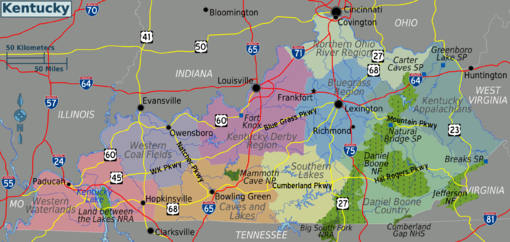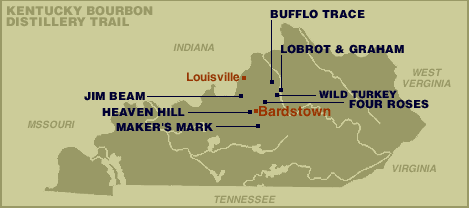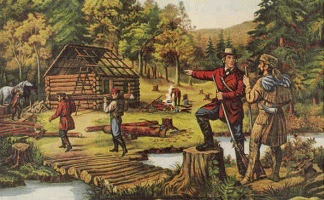We all know that there are lots of distilleries in Kentucky. Why Kentucky?
There are many reasons for Kentucky maintaining its hold on whiskey production in the United States during and after Prohibition (we’ll discuss that another time…), but it had to all start somehow…
Before Kentucky became a state in 1792, the country was changing and growing and settlers were making their homes in the Virginia Colony. Folks like Daniel Boone were making their way through the Cumberland Gap and moving west. Part of the interest in seeking out land in Virginia were the land grants offered to soldiers after the Revolutionary War. In 1779, the Virginia Land Office was established and official awards of “bounty lands” were awarded for specified Revolutionary War military service. (In truth, the bounties were established to keep soldiers recruited for longer periods of time.) In order to qualify for bounty land, a soldier or sailor had to serve at least 3 years continuously in the State or Continental Line or State Navy. (Militia service did not count.) Virginia’s Kentucky County found itself with lots of settlers, not all of whom had legal claims to land. In the late 18th century, “Corn Writs” were given to settlers with contested claims that already had established farms in Kentucky. If they could prove that they had built a cabin and raised a 40 acre crop on their farm, the new state would allow their claim to stand. (Many claims later in the 19th century were bought for pennies on the dollar from speculators buying up property from veter ans or their heirs.)
Most settlers were farmers and many brought their stills with them to their new land. The main crop was corn, and surplus grain was made into unaged whiskey to use for trade/currency. You can imagine that when our country was formed and the newly formed government began demanding taxes be paid on whiskey to clear up national debt from the Revolution, Kentucky settlers were not impressed. The Whiskey Rebellion that took place in Pennsylvania was not an isolated incident. Kentucky distillers were reacting in very much the same way as the western Pennsylvanians, but the rebellion was squashed in Pennsylvania which was much easier to access and where our first president could make his point more easily.
The many rivers throughout the state served as transportation routes for traders and trappers making it easy to move heavy loads over long distances. Not only was setting up your still near water good for transportation of finished product , but cold, flowing water was also necessary for the production process. Kentucky is also known for its limestone water which is high in magnesium and calcium and free of iron. These qualities in the water help maintain pH levels and encourage yeast growth during fermentation. It was free, good quality water for the early distillers. The rural backwoods of Kentucky provided everything a distiller needed to produce good whiskey. Abundance of grain and fertile land in the “Bluegrass Region” and “Kentucky Derby Region” (limestone water and abundant grains are good for raising racehorses,too…), and a community of local distillers supported the growth of whiskey in the newly formed state of Kentucky.



